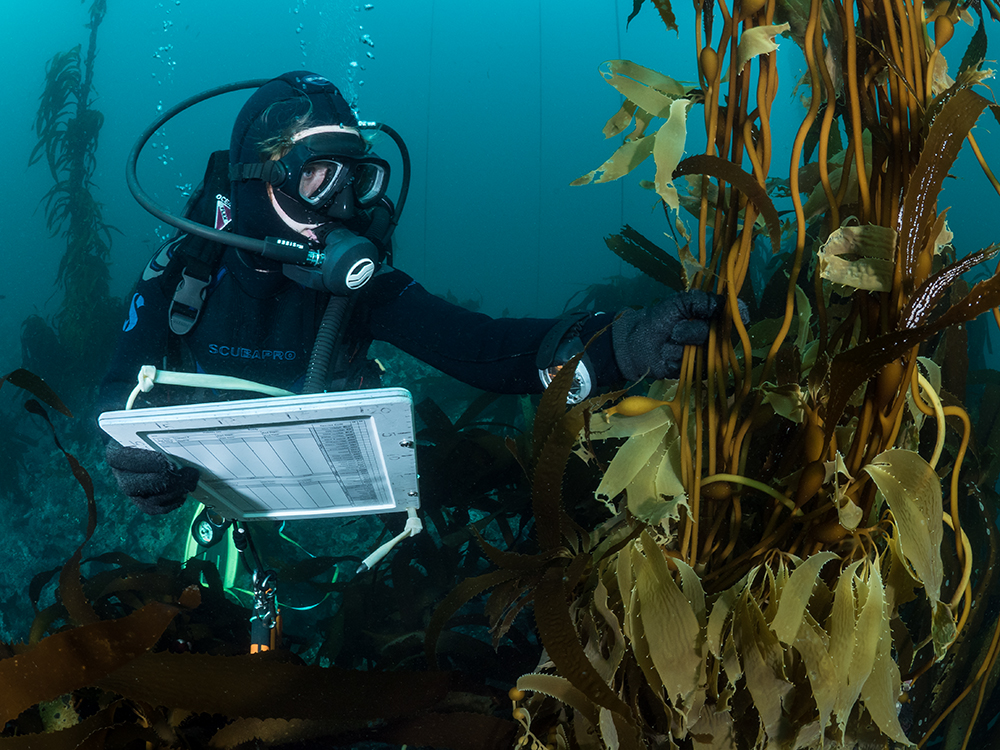Kelp Restoration as an Integrated Socio-Ecological System (Kelp RISES): management decision-making in a changing climate
About:
Climate change is having unprecedented effects on our planet’s ecosystem. This includes California’s kelp forests, which have undergone dramatic shifts, in part linked to extreme temperatures. Kelp form underwater forests that support a diversity of species, fisheries, and associated livelihoods in California coastal communities. Recently, several particularly warm years, combined with a disease outbreak in seastars that eat kelp-grazing urchins, led to the loss of over 90% of the kelp on California’s north coast. These changes in the kelp ecosystem affect the human communities that are intimately connected to the ecosystem and involved in its stewardship, including Tribes, commercial and recreational fishermen and divers, tourism businesses, environmental NGOs, and government officials.
This project explores the question: how might different management approaches account for ongoing climate change? If resource managers, community members, or others decide to conduct restoration actions, they might, on one hand, seek to restore ecosystems back to some previous state and perhaps bolster it against further climate change. On the other hand, they might seek to transform the ecosystem towards a new state that might be more able to withstand future climate change. These represent the extremes of a range of possible restoration goals.
We are using a multidisciplinary, integrated approach to explore how the potential to achieve these different goals depends on different parts of the ecosystem and associated human communities. To this end, our project has three key components:
We are using social science research methods to understand
- how individuals and communities rely on and relate to the kelp social-ecological system,
- community knowledge, attitudes, and perceptions of that system, and
- values and priorities for the future of the ecosystem.
We are using oceanographic data and ecological field studies to understand the drivers of
- ecosystem vulnerability to extreme temperatures and land runoff,
- recovery through natural processes, and
- response to different restoration interventions.
We are using a combination of bio-economic models and network analysis to
- explore potential long-term outcomes of different restoration approaches
- identify optimal approaches towards achieving different restoration goals, and
- identify potential barriers to achieving those goals.
By integrating these approaches, we aim to provide the people, communities, Tribes, and managers connected to kelp ecosystems with grounded, holistic information and understanding that can help support decision-making about the future of this iconic system.
This project is funded by the National Science Foundation program in Dynamics of Integrated Socio-Environmental Systems (DISES). For more information, see our NSF Public abstract at: https://www.nsf.gov/awardsearch/showAward?AWD_ID=2108002


